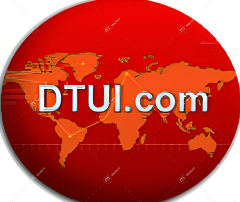Introduction to Cultural Diversity Inclusion & Equity Leadership
The Introduction to Cultural Diversity Inclusion & Equity Leadership course aims to provide participants with a deep understanding of institutional racism, inequity, and its impact on marginalized and racialized communities. Through this course, participants will learn about the various forms of institutional racism prevalent in our society and develop the skills and knowledge necessary to identify and eliminate them.

DTUI.com
Course Overview
Introduction to Cultural Diversity Inclusion & Equity Leadership
Course Overview
- Instructor: TBD
- Length: 10 Online Modules
- Office hours: TBD
- Grade: Pass/Fail (78%)
- Course Access: 365 Days/ 7 Days per Week/ 24 Hours per Day
- Format: Online
- Contact: +1.415.692.0121 (Business Office); admin@dtui.com
Objectives
- Develop a strong understanding of the historical context, bias, power dynamics, and privilege in the workplace.
- Enhance leadership skills to become a more effective cultural diversity, equity, and inclusion (CDEI) leader.
- Learn to facilitate productive conversations that address equity, diversity, and inclusion.
- Gain critical knowledge and skills to address bias and marginalization and foster an inclusive corporate culture.
- Learn conceptual models to identify and address biases, promote behavioral change, redefine leadership, and recognize dimensions of equity.
- Address known and unknown barriers to building inclusive and diverse teams, such as making the business case and combating unconscious bias.
Goals
By the end of this course, participants will be able to:
- Identify and measure the opportunities and challenges in developing diverse, inclusive, and equitable initiatives, practices, and policies within participants’ organizations. (Measurable)
- Identify leadership skills in cultural diversity, equity, and inclusion (CDEI) needed to drive organizational change effectively. (Achievable)
- Facilitate productive conversations among participants that address equity, diversity, and inclusion, fostering an inclusive corporate culture. (Relevant)
- Explain how to onboard an organization’s leadership to the cultural diversity, equity, and inclusion initiative.
Materials
- Textbook
Modules
- Historical Perspectives on Cultural Diversity and Inclusion
- Sources of Inequities (Interpersonal): Unconscious Bias and Stereotype Threat
- Sources of Inequities (Institutional): Bias in Institutional Values, Policies & Practices
- Creating Inclusive Organizational Cultures
- Intersectionality and Multiple Identities
- Think Organizational Change
- Managing Racial Equity
- Allyship and Advocacy
- Leading Change and Sustaining Inclusion Efforts
Technical Needs
- Computer with high-speed internet access
- Access to the online meeting platform (Please try this at least two days before the first lecture/discussion session to manage any technical difficulties beforehand).
- Telephone access (preferably with earphones)
- MS Word (Do not submit files in pdf, please)
Course module details
Course Logistics
MODULE 1: Foundations of Racial Equity and Inclusion
MODULE 2: Talent Management and Cultural Diversity, Equity and Inclusion
MODULE 3: Fostering a Work Environment That Champions Racial Equity
MODULE 4: The Organizational Change Dilemma
MODULE 5: Risk Management
MODULE 6: Overemphasis on Risk Management Stifles Organizational Change
MODULE 7: Shifting From Implementing Best Practices to Culture Change
MODULE 8: Understanding Organizational Culture & Change
MODULE 9: The CDEI Professional as Culture Change Agent
Kopenhavn
This course provides participants with a framework for transforming an organization into an engaged, productive, and inclusive workforce
Why students love this course
Still Have Any Questions?
Check out the FAQs.
The DELA difference is that our training is designed to develop professional awareness, attitude (inclusive values and beliefs), knowledge, and skills. A comprehensive examination only assesses your knowledge. Each DELA program is designed to develop professional skills rather than cover only the knowledge you need to pass a final exam. Our certification recipients boast about having designed and developed a strategic plan, a diversity training, or a diversity recruitment plan upon completing their program. In that way, the knowledge you is put into practice. Instructors provide the feedback needed to complete the projects successfully. One graduate boasts that she developed a cultural diversity strategic plan by the end of the CDP training, for example. Her organization adopted the plan because she included staff during the design and development phases. A police officer developed cultural diversity training for officers in her department. The product you develop can be put into your professional portfolio along with the credentials that you earn..
>The CDE is designed and developed for individuals serving in cultural diversity leadership roles within an organization. The individual typically reports directly to the head of the organization, such as the CEO or president. The graduate’s range of potential influence within the organization is considerable compared to a diversity manager or someone with diversity and inclusion (D&I) expertise reporting to a middle manager, such as the human resource manager.
Yes, the distance learning format was the first format we offered the programs back in 1998. Now we use a state of the art learning platform called Canvas Instructure. You can begin the first course in each online program as soon as you register. There is also a weekly – strictly voluntarily – live one-hour video conferencing session for the course. It either meets either on a Tuesday or Thursday. You do not have to attend. It there when you want to attend. You can ask questions, meet other participants, and get an overview of the current module being covered in the course.
That is an excellent question. As of August 1, 2020, federal and state guidance on how to reopen live classroom training sessions is insufficient to even guess at start dates. The pandemic has not been arrested and that is likely the best turn of events that will offer that insight. Please check back as often as necessary or sign up to receive our newsletter at the bottom of this page.
In the meantime, online courses have, understandably, become very possible. In addition, we are currently considering a more intensive live, online experience (e.g., fours hour per day over two days for each course). If that is something you are interested in learning more about, please contact us.
Diversity Certification refers to the credentialing of professionals to serve in management or executive level diversity and inclusion leadership roles.






